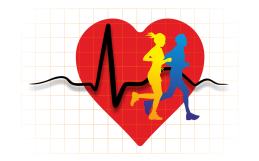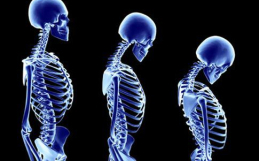Another year has passed and a new one has begun. Along with that, new goals are set and the idea of a New Year’s resolution is very disheartening for many (including myself) due to the failure that often results.
One way to counter this feeling is to take baby steps. What about the idea of trying to be a bit better rather than perfect?
This is the theme of bestselling author Gretchen Rubin’s Better Than Before. I like several ideas behind this book as we strive for improvement for our families and ourselves.
We will very likely fail if we pick a system that does not work with our tendency. We are all very unique and have different tendencies. Rubin emphasizes a ‘four tendencies framework’. Are you an Upholder, Questioner, Obliger, or Rebel?
• Upholders respond readily to outer and inner expectations (pro: easy to keep deadlines, habits and resolution, hate to fail expectations; con: too driven by rules and boxed in like a paranoid and paralyzed). Video of upholder.
• Questioners question all expectations; they’ll meet an expectation if they think it makes sense (all expectations are inner; motivated by need and reason, hate arbitrary and not fair; engaged and love research, ask why often and is tiresome for all including self). Video of questioner.
• Rebels resist all expectations, outer and inner alike (motivated by present desire; resist if asked or told or will do opposite; great for thinking outside of box; very authentic; can be frustrating for others; new habit must give freedom and choice). Video of rebels.
• Obligers meet outer expectations, but struggle to meet expectations they impose on themselves ( always do what has to be done and expected by others. The rock that shows up, volunteers, people please. Secret is external accountability. May need to go with a friend, have a coach/trainer, have a pet, etc.). Video of obligers.
Rubin has provided 21 strategies in her book, that you can choose from based on your tendencies. Some may work and others may not. Sometimes several strategies may work in combination.
I know for myself abstaining is key. For some of us, moderation is too tough; it’s easier to give up something altogether. (Works very well for some people, and not at all for others.)
Try not to beat yourself up when you stumble since ‘a stumble is better than a fall’.
Convenience. Making it easy to do the right thing and hard to do the behaviour we are trying to avoid. Put your cell phone in the trunk if you use your phone while driving.
Accountability: Research shows people with dogs get more exercise than those who go to gym. Your tendency may be to move more for others than for yourself (see obliger video above).
Monitor: those who diary or make notes of behaviour (food, activity, sleep). New apps allow self quantification to be quite easy. Such as Sleep Cycle and My Fitness Pal. Also using your device or pedometer to track your steps.
Identity. When you identify yourself as a certain person or not you are more likely to change. We all cling to our old identity. If your identity is not serving the new habit, you may want to revisit this identity. Going to bed late as a parent of a baby may require a new identity as you will run into significant health/mood issues quickly.
Scheduling. Carved out like a doctor’s appointment. I also call these double yellow lines that are not crossed. This is what happens.
Lightening bolt/new information may change your behaviour (Gary Taubes’ book, Why We Get Fat, did this for me) . For some it may be a doctor’s report, pregnancy, etc.
Reward a good habit with good. By yourself clothes for exercise or good quality knives for cooking your own food. We often reward ourselves with a negative ie the behaviour we are trying to avoid.
Clarity. The clearer you are about your goals the easier to accomplish
Avoid ‘decision fatigue’. It is exhausting to ask yourself whether or not you should do something; habits remove decision making. You don’t’ decide if you go to gym after work. You simply always go to gym after work. Should I eat sugar? I don’t eat sugar.
None of these are easy but using many strategies and knowing yourself better is a good way to begin to be better.
Trying to impose your habits on others is a bad idea. Trust me I know what it feels like to be evangelical about a new-found behaviour or habit. Your habits rub off on other people, and their habits rub off on you. Just watch what happens when you are consistent to those around you.
There is no magic solution. I know this from many failed New Years’ resolutions. Look for the lowest hanging fruit or the easiest strategy.
¡Buena Suerte! (Good luck!) y ¡Feliz Año Nuevo! (Happy New Year!)
thanks to ‘2011-year-resolution’ for the pic!













